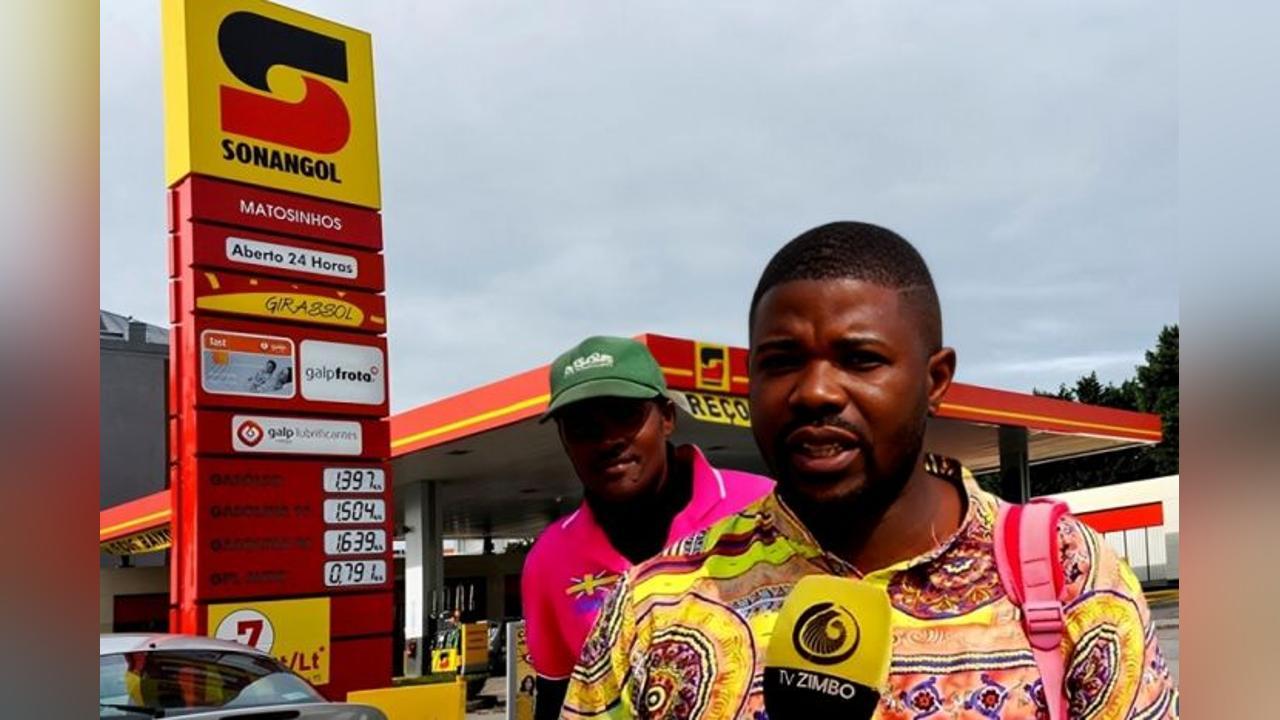Africa-Press – Angola. “A robbery” on the pockets was how news of a new rise in fuel prices was received in Luanda, a “sudden” measure that is expected to further increase the cost of living for families, according to consumers interviewed by Lusa.
Surprised by the increase in the price of a litre of diesel, which since the early hours of today has cost 400 kwanzas (0.37 euros), compared to the previous 300 kwanzas (around 0.28 euros), the inhabitants of Luanda foresee worse days ahead with the main products and services becoming more expensive.
In the round carried out today by Lusa, at the main stops and fuel stations in the Angolan capital, motorists, taxi drivers, motorcycle taxi drivers and street vendors, for the most part, disapproved of the measure and criticized the government’s policies.
“This is an assault on our pockets (…) [this decision] needed to be announced and the sooner the better, it’s not going to happen all of a sudden, imagine how many people we have with diesel taxis”, said Bernardo Cassoma.
Speaking to Lusa, while filling up his vehicle at the Sonangalp gas station, Avenida Comandante Gika, in the center of Luanda, Cassoma, who has been providing personalized taxi services for five years, considered that the increase in fuel prices will “kill” citizens.
“School fees just went up and before I could think about it, another one came up! What are they doing to us? They want to kill us, that’s all I have to say,” he said, anticipating more difficulties in providing “bread” for his family.
Faustino Lopes, a 50-year-old motorist, described the new price per liter of diesel as a measure that will worsen the already difficult living conditions of Angolans, fearing that taxi fares will double.
He therefore considered that difficult days are coming for Angolans, especially those who depend on private taxis to travel from home to work and vice versa.
“We ask our leaders to also look at the situation the people are living in and what the conditions are like, because we are not being helped at all and with this increase day after day. It is really complicated”, Bernardo Cassoma also lamented.
On board his motorbike, Orlando Morais, a motorcycle taxi driver, expressed surprise at the new fuel tariff and argued that the decision should have been preceded by concerted actions with taxi and motorcycle taxi drivers, aiming to prevent objections.
“This situation could create demonstrations, because things are going up overnight, fuel prices are going up and, then, it’s very complicated,” he said.
On Avenida Deolinda Rodrigues, in front of the Atlético gas station, managed by Sonangol, we found Marlene Salvador da Silva, a street coffee vendor who predicts “worse days”, especially because of the taxi fare, which she believes will increase.
With a thermos in her hand and dressed in a kitchen coat, where she displayed the products she sells, especially to motorists and passers-by, Marlene fears that her daily transport costs will double, considering that she is facing a “complicated” situation.
“Where are we going to end up, this is complicated! To come and sell I spent [on the taxi] 800 kwanzas (0.74 euros) now how much am I going to pay? This is bad, how are we going to live?”, asked the 32-year-old saleswoman.
Miguel Agostinho, 43, at the wheel of his “blue and white”, as private taxi service vehicles are known, also told Lusa that he was surprised by the increase in the price of a liter of diesel and criticized the government.
“Look, to be honest, I didn’t even know about it [the fuel price hike], I believe that this is a country that is being poorly governed, because people don’t believe that things change overnight, people go to sleep and when they wake up they’re scared, something has already happened suddenly,” he said.
Having been on the road for almost five years, Miguel says that the taxi journey should increase, because, he explained, from now on he will spend 8,000 kwanzas (7.4 euros) per day to fill up the vehicle, compared to the previous 6,000 kwanzas (5.5 euros).
For More News And Analysis About Angola Follow Africa-Press






